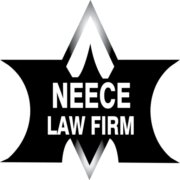Best Brokerage Lawyers in North Carolina
Share your needs with us, get contacted by law firms.
Free. Takes 2 min.
Free Guide to Hiring a Real Estate Lawyer
Or refine your search by selecting a city:
List of the best lawyers in North Carolina, United States
About Brokerage Law in North Carolina, United States
Brokerage law in North Carolina involves the legal rules and regulations governing professionals and companies that act as intermediaries in various transactions. Most commonly, this applies to real estate brokers, but the term can also refer to securities brokers, insurance brokers, and business brokers. The North Carolina Real Estate Commission (NCREC) is the primary regulatory body overseeing real estate brokers in the state. Any person or business that assists others in buying, selling, leasing, or managing real property for a fee must typically be licensed and comply with strict statutory and regulatory requirements. Brokerage laws are designed to protect consumers, maintain ethical standards, and ensure fair dealings in the marketplace.
Why You May Need a Lawyer
Legal issues in brokerage can be complex, and you may need a lawyer in situations such as:
- Disputes with a broker or agent regarding commissions, contract terms, or services rendered
- Allegations of broker misconduct such as misrepresentation, fraud, or breach of fiduciary duty
- Assistance reviewing or drafting brokerage agreements and related contracts
- Defending against or pursuing claims relating to licensing issues and disciplinary actions by regulatory bodies
- Handling complex transactions involving commercial, residential, or investment properties
- Understanding the legal implications of co-brokerage or dual agency arrangements
- Resolving disputes over escrow funds or earnest money deposits
- Compliance with state and federal anti-fraud and fair housing laws
Working with an attorney experienced in North Carolina brokerage law can help protect your rights and interests in these situations.
Local Laws Overview
North Carolina has specific laws and regulations that apply to brokerage activities:
- All real estate brokers must be licensed under the North Carolina Real Estate License Law (Chapter 93A of the NC General Statutes)
- Brokers owe fiduciary duties to their clients, including loyalty, disclosure, confidentiality, and accounting for funds
- Written agency agreements are typically required to establish the broker-client relationship
- Brokers must provide clients with the Working With Real Estate Agents disclosure as mandated by the NCREC
- There are regulations concerning advertising, handling of escrow funds, and record-keeping
- Dual agency, where a broker represents both buyer and seller, is permitted under strict disclosure and consent requirements
- The NCREC oversees complaints, conducts audits, and can impose sanctions including license revocation
- There are additional state and federal laws concerning fair housing, anti-fraud practices, and consumer protections
It's important to familiarize yourself with these legal requirements or seek professional guidance when engaging in brokerage-related transactions.
Frequently Asked Questions
Do I need a real estate broker to buy or sell property in North Carolina?
No, you are not legally required to use a broker, but brokers provide valuable expertise in transactions, negotiations, and compliance with legal requirements.
How do I verify if a broker is licensed in North Carolina?
You can verify the license status of a broker through the North Carolina Real Estate Commission. Checking a broker's license helps ensure they are authorized and in good standing.
What are the main duties of a broker to their clients?
Brokers owe clients duties of loyalty, disclosure, obedience, confidentiality, reasonable care, and accounting for all monies received in the transaction.
What is dual agency and is it allowed in North Carolina?
Dual agency occurs when one broker represents both buyer and seller in the same transaction. It is allowed if both parties give written informed consent.
Can a broker help me with commercial property transactions?
Yes, many brokers specialize in commercial real estate. Always confirm that your broker has experience with commercial transactions if that is your need.
What should I do if I have a complaint about a broker?
You can file a complaint with the North Carolina Real Estate Commission, which investigates allegations against licensed brokers and enforces disciplinary actions if necessary.
Are brokers allowed to keep client funds?
No, client funds such as earnest money or deposits must be held in escrow accounts in accordance with strict legal requirements.
What happens if a broker violates state law?
Brokers may face disciplinary actions including fines, suspension, or revocation of their license, and could also be subject to civil lawsuits.
How are brokers paid in North Carolina?
Most brokers are paid through commissions, which are negotiable and are typically a percentage of the transaction price. The terms should be clear in your brokerage agreement.
What is the difference between a broker and a salesperson?
In North Carolina, all licensees are called brokers, but there are provisional brokers (entry level) who must work under the supervision of a full broker-in-charge until fully qualified.
Additional Resources
If you are seeking more information or need help in brokerage matters, these resources can assist you:
- North Carolina Real Estate Commission: Regulates real estate brokers, provides licensing information, and handles complaints
- North Carolina Secretary of State: Regulates securities and business brokers and provides business registration services
- Local legal aid organizations: Some provide assistance with brokerage disputes or consumer protection issues
- North Carolina Association of REALTORS: Offers educational resources and referrals to licensed brokers
- Better Business Bureau of Eastern North Carolina: Handles complaints and rates brokerages on ethical practices
Next Steps
If you believe you need legal assistance involving a brokerage matter in North Carolina:
- Collect and organize all relevant documents, such as contracts, emails, and advertisements
- Write down a detailed summary of your situation and the outcome you are seeking
- Research and contact attorneys who specialize in brokerage, real estate, or business law in North Carolina
- If the issue relates to a licensed broker, consider filing a complaint with the North Carolina Real Estate Commission
- Schedule a consultation to discuss your rights, options, and the best course of action for your specific situation
Taking timely steps can protect your interests and help achieve a resolution that aligns with your needs under North Carolina law.
Lawzana helps you find the best lawyers and law firms in North Carolina through a curated and pre-screened list of qualified legal professionals. Our platform offers rankings and detailed profiles of attorneys and law firms, allowing you to compare based on practice areas, including Brokerage, experience, and client feedback.
Each profile includes a description of the firm's areas of practice, client reviews, team members and partners, year of establishment, spoken languages, office locations, contact information, social media presence, and any published articles or resources. Most firms on our platform speak English and are experienced in both local and international legal matters.
Get a quote from top-rated law firms in North Carolina, United States — quickly, securely, and without unnecessary hassle.
Disclaimer:
The information provided on this page is for general informational purposes only and does not constitute legal advice. While we strive to ensure the accuracy and relevance of the content, legal information may change over time, and interpretations of the law can vary. You should always consult with a qualified legal professional for advice specific to your situation.
We disclaim all liability for actions taken or not taken based on the content of this page. If you believe any information is incorrect or outdated, please contact us, and we will review and update it where appropriate.
Browse brokerage law firms by city in North Carolina
Refine your search by selecting a city.













